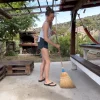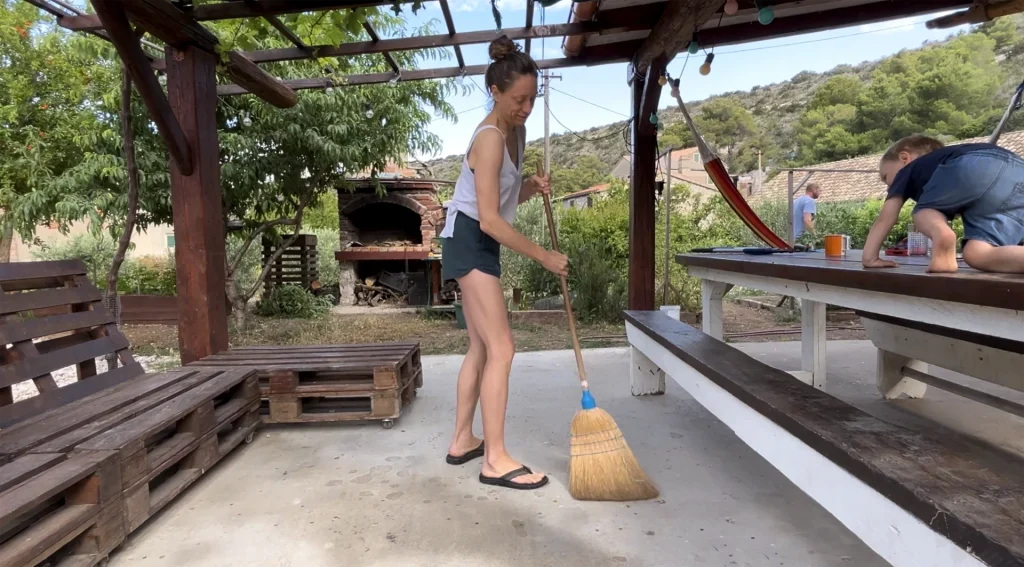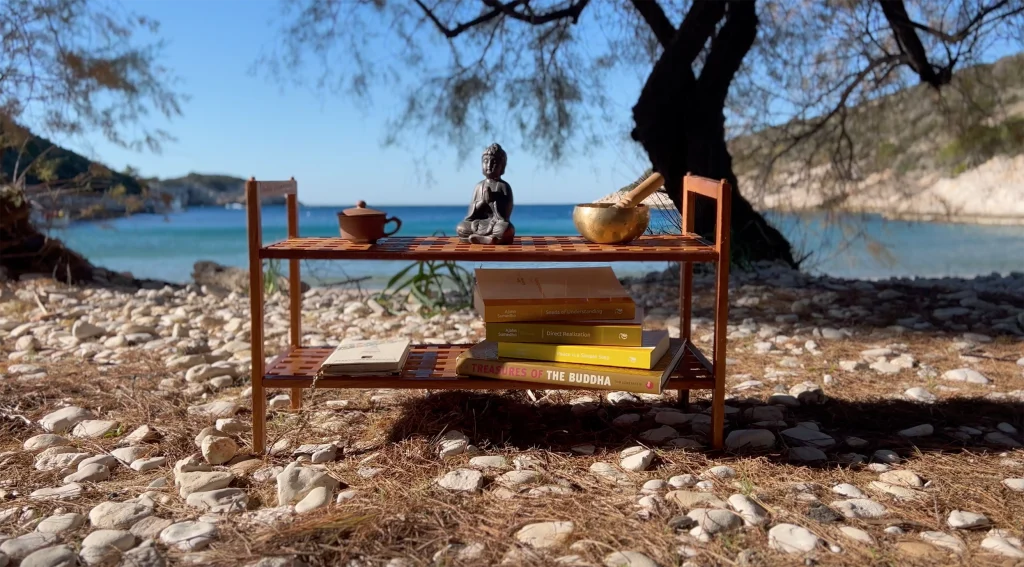Where does ecology begin?
Ecology begins with the choice of purchase.
It’s hard for me to see how the need to buy toys for children is part of a cultural etiquette that serves to make you appear “correct” in society, and once you hand over that item you are no longer responsible for it. But you are, you are responsible. Now think about all the nonsense we buy and where it ended up, what condition it is in now that it no longer shines from the plastic box that gives off that illusion of value.
I forbade the family from buying items for my son, fortunately, relatively speaking, most of them listened. But still, here on the most remote inhabited island, I struggle with the fact that Nikola is brought plastic junk and an excessive amount of toys. Then we go to the beach and the same junk that floats and washes up is collected in bags and thrown away. I know we are part of a cycle and it horrifies me.
Can’t the buyer look the item in the eye and imagine it 2 years from now, thrown away, no one needs it, drowning fish and suffocating turtles in the sea?
There is no salvation for ecology, no way out of consumerism that gives us this superficial value, while taking away the creativity and soul that we could otherwise give to creative processes, socializing, and quality time spent.
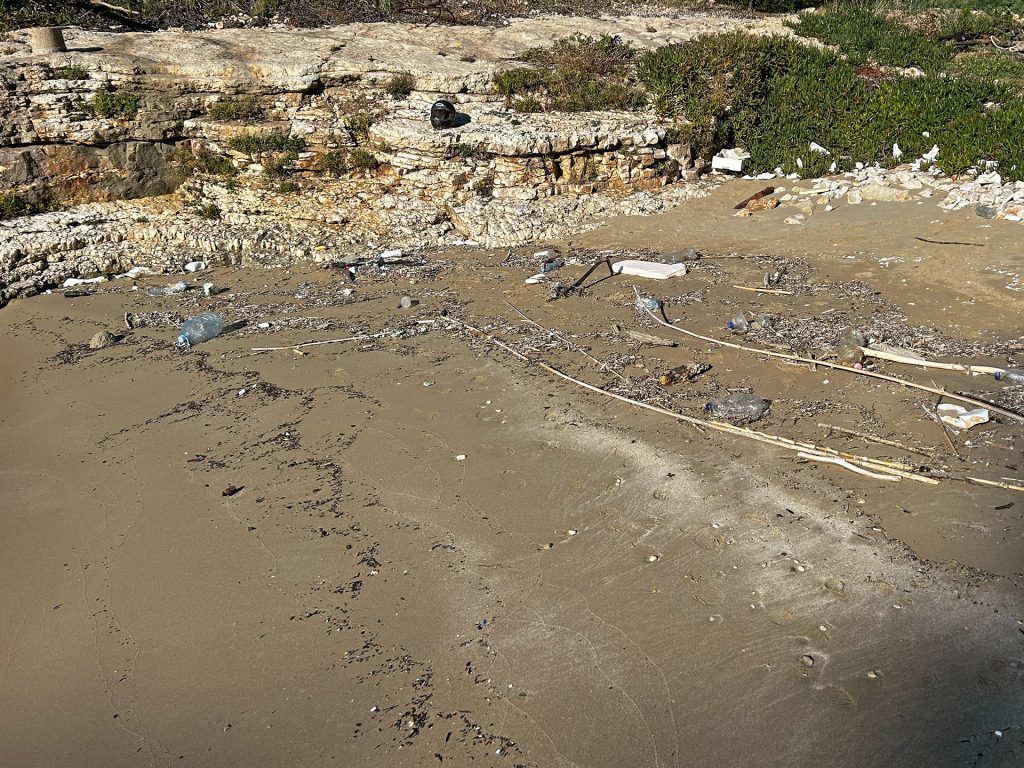
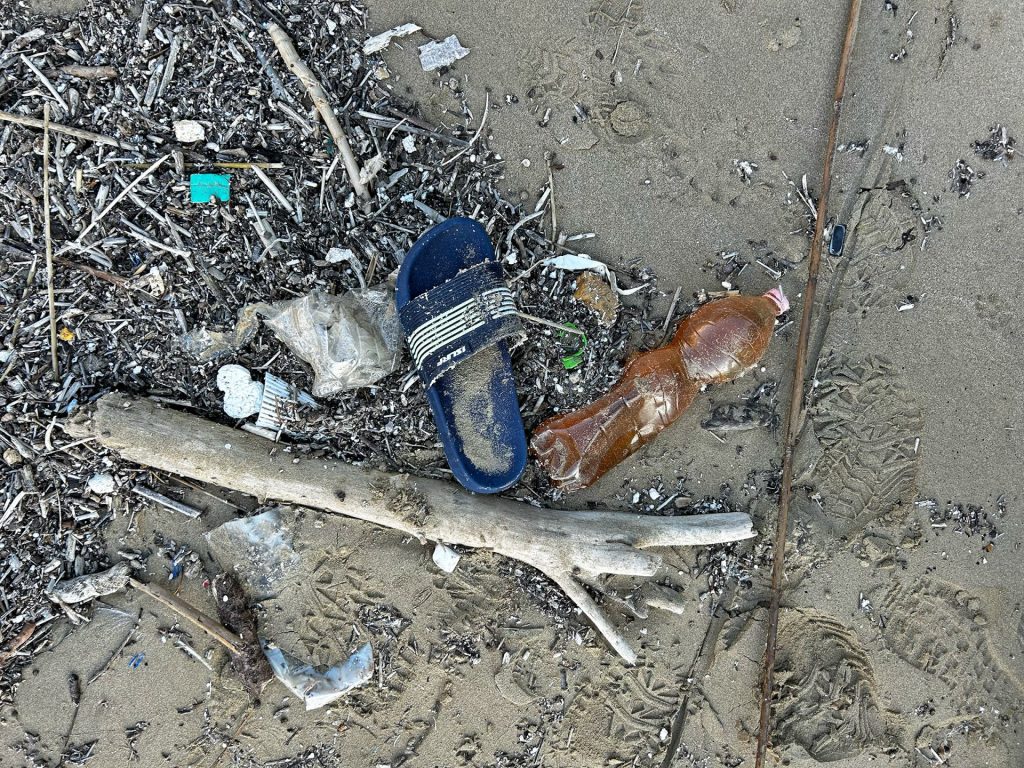
The beach of Salbunara Bay is full of all kinds of garbage.
Okay, to put things in a constructive light, I can say this.
Ecology starts with first clarifying your intention, why am I buying this?
In order for a child to play, to fulfill what is expected of me, “it’s my birthday, I need balloons”? In any case, a child does not need a toy, but a person and a relationship. In the past, people tried to buy happiness with toys, but, thank God, now they have figured out that children do not need that! It is now known that a child needs someone who will play with him, even if it is with a twig, rather than the latest mega mobile motorbike, tractor, excavator…
Ok, that is solved – children develop their imagination and creativity better when they are surrounded by fewer toys, more nature and people who love them.
Then only that problem remains in us “well, I can’t come empty-handed” or “it is expected of me”.
Buy something useful and practical – food, fruit or clothes. Give your three hours of time and attention – that is the most original, most personal, authentic, unique, never-to-be-repeated gift.
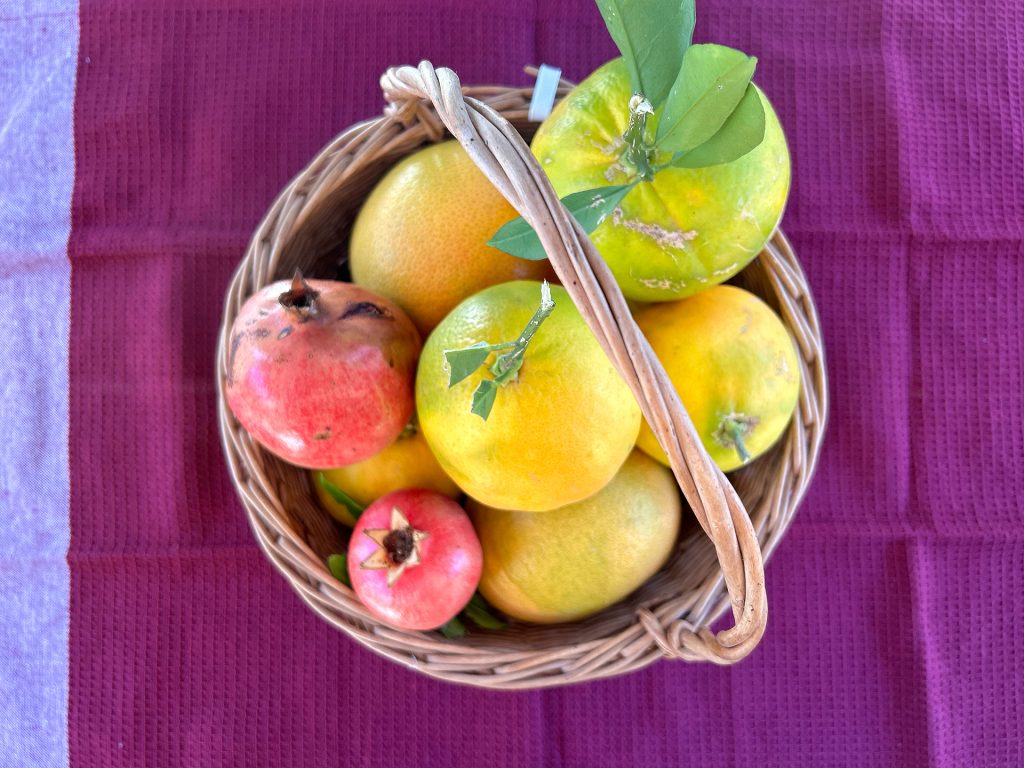
Ecology begins with understanding that the main cause of garbage is a consumerist lifestyle in which it is presented that we need everything and that it will improve our lives.
No one is responsible for the consequences of the production, transport and distribution of objects, and the buyer is not responsible for their disposal. The one to whom the purchase was made shakes his head in the direction of justifying your purchase choice because he is also enchanted by standardized etiquette, and with the gift he also receives a forced responsibility for the object received, whether he needed it at all or not. This means that no one in this entire chain takes responsibility, the former only think about how to get our money, and we how to build a bridge between etiquette and expectations and that is why we are all together ready to sacrifice the air we breathe, the water we drink, the microbes in the soil and the bees in the air? Really?
We need to raise our heads from the sand of our microcosm in which we currently do not see the garbage around us and look at the bigger picture of the truth in which we are actually immersed.
Where does ecology and our small responsibility begin?
It starts with being aware of our intentions when we buy something and thinking every time that the Great Pacific Garbage Patch (GPGP) is bigger than three French ones and that what we have bought now will end up there very soon. That every purchase is a contribution to the pile that is overwhelming us to the point that we take the garbage to “distant countries”, bury it and send it into space – even our orbit is full of garbage!
How sick that is.
The buyer is the one who chooses and takes responsibility for what they buy and for their complex/reason for buying more, unnecessary things. The buyer sees attractive packaging, in it their value, social status and by buying it they confirm that production chain. The buyer has no idea (and does not want to have one) about reality, under what conditions it was made, on whose back this economy stands and where it all goes when it leaves our hands. It goes into nature, believe me, there is nowhere else.
The customer is the one who has responsibility because he chooses where the money goes, and thus also how the economy develops, defines the ecology and creates social norms.
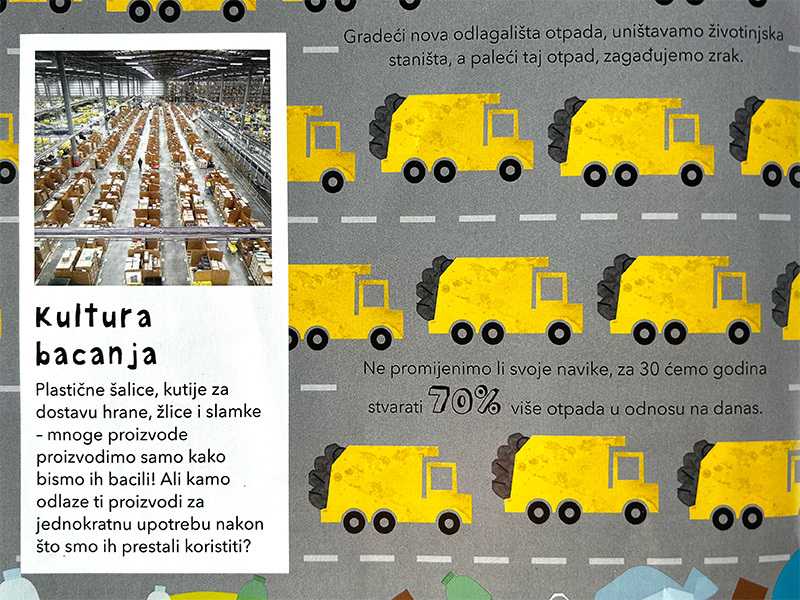
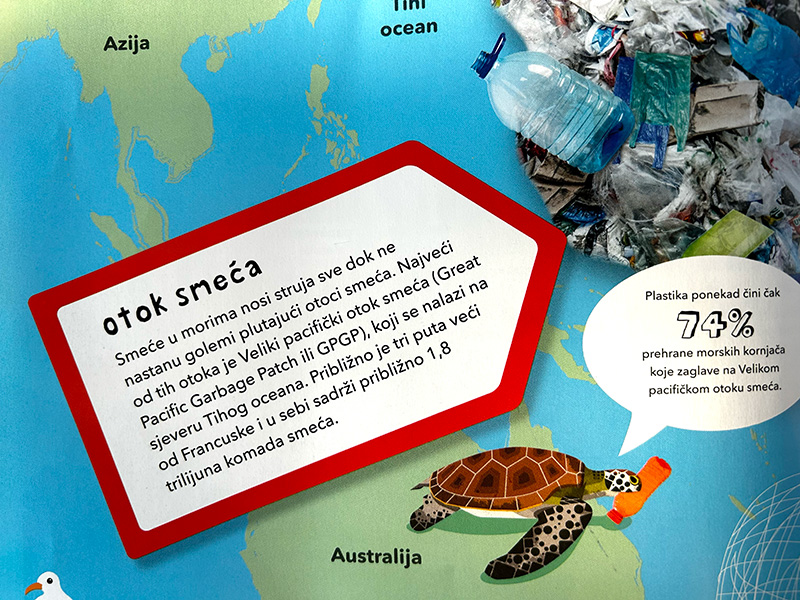

Excerpts from the book “What about the waste”
I sincerely invite you from the shores of Biševo Island, where piles of trash wash up every year, to stop buying things. You don’t need them, borrow, repair, make them by hand, redefine your values, and come with a sincere smile instead of your hands full of plastic and plastic packaging. Educate yourself on this issue and be a positive role model because, I won’t even say that this is about the future of our descendants, it’s about all of us now.
“3 Rs of trash”: Reduce, Reuse, Recycle. Each step means less waste at the end of the day.
A gift is the joy of giving, sharing, and togetherness, not an object.
My grandfather used to collect acorns in Maksimir, draw faces on them, and give them to us in unusual places with the story that squirrels drew them. Mom would bring pistachios every time we walked a little longer and tell stories while we munched on them, and somehow it stayed connected – pistachios, stories, and walks in the forest. Grandma sat with us and taught us math in a fun way, she had incredible patience. Dad let us dig for treasure in the garden, hunt pigeons and train ants even though he knew how it would end, the important thing was the act and not the goal…
Were those really other times? When there was nothing else but to play and create that personal value that memories have.
Can we cultivate humanity while living with modern technology and the abundance of a consumerist society? It’s up to you to choose.
Gift ideas:
- A nature trip to a specific place, such as a nature park or a national park.
- Cable car to Sljeme and climbing the radio tower.
- Some new experience, e.g. horse riding, archery, going to the sauna or to the ballet at HNK.
- Nice lunch in a special restaurant.
- Summer vacation or winter vacation.
- Something you can do yourself and add your personal value.
- Virtual gifts such as online education and training, e.g. my online yoga program.
- Live training, education and workshops.
- Domestic products from the OPG estate, e.g. honey, olive oil, homemade cheese.
- Creations from local artists and craftsmen, e.g. – bags, hats and clothes from girls who crochet and sew.
- Add to list…
Header photo: Salbunara Bay, no trash visible from the air, photographed by Carlo Kovačec.
Inspiration: “What about the waste”, Jess French

